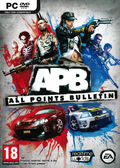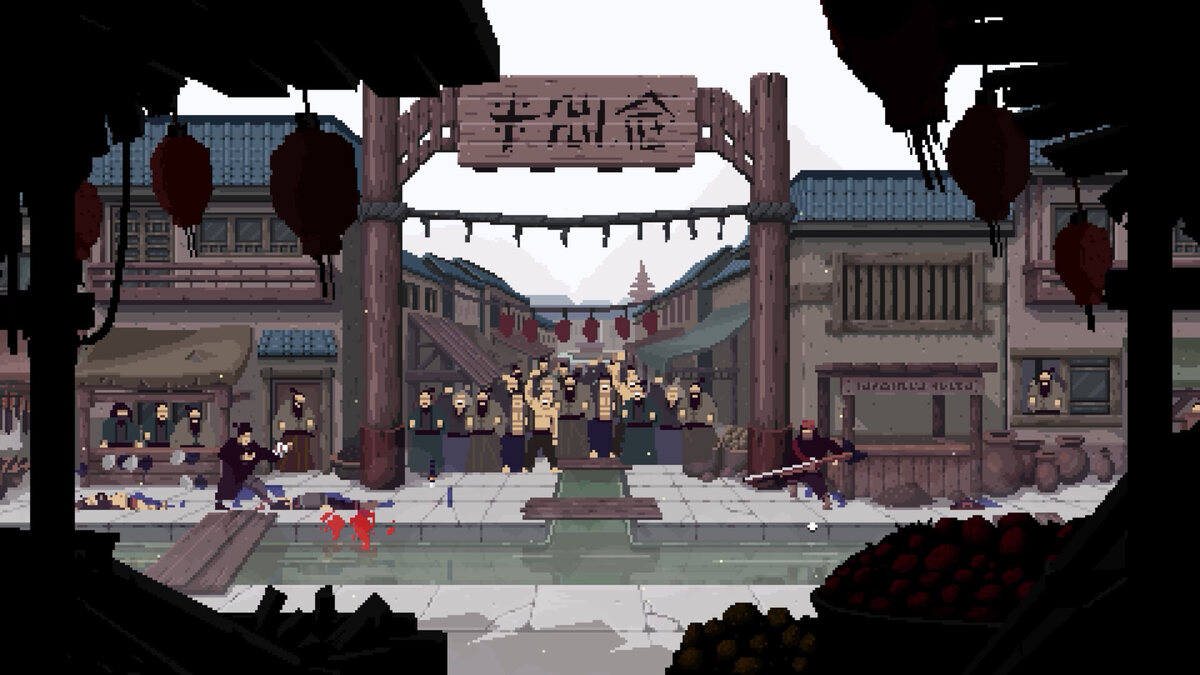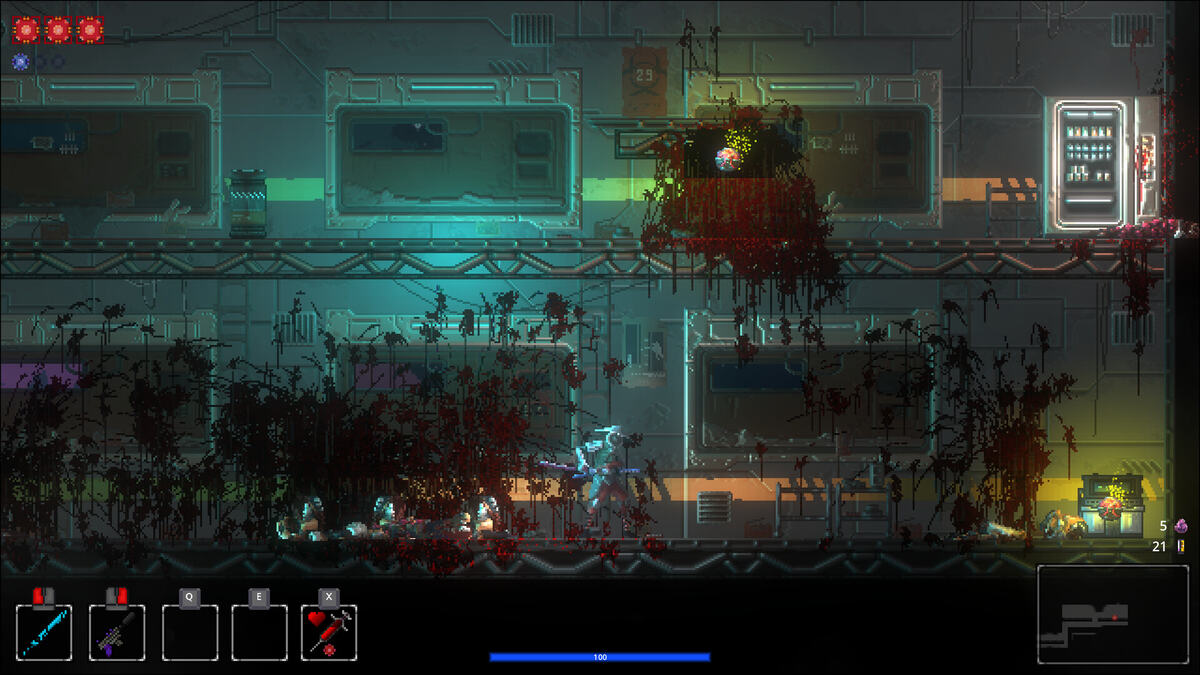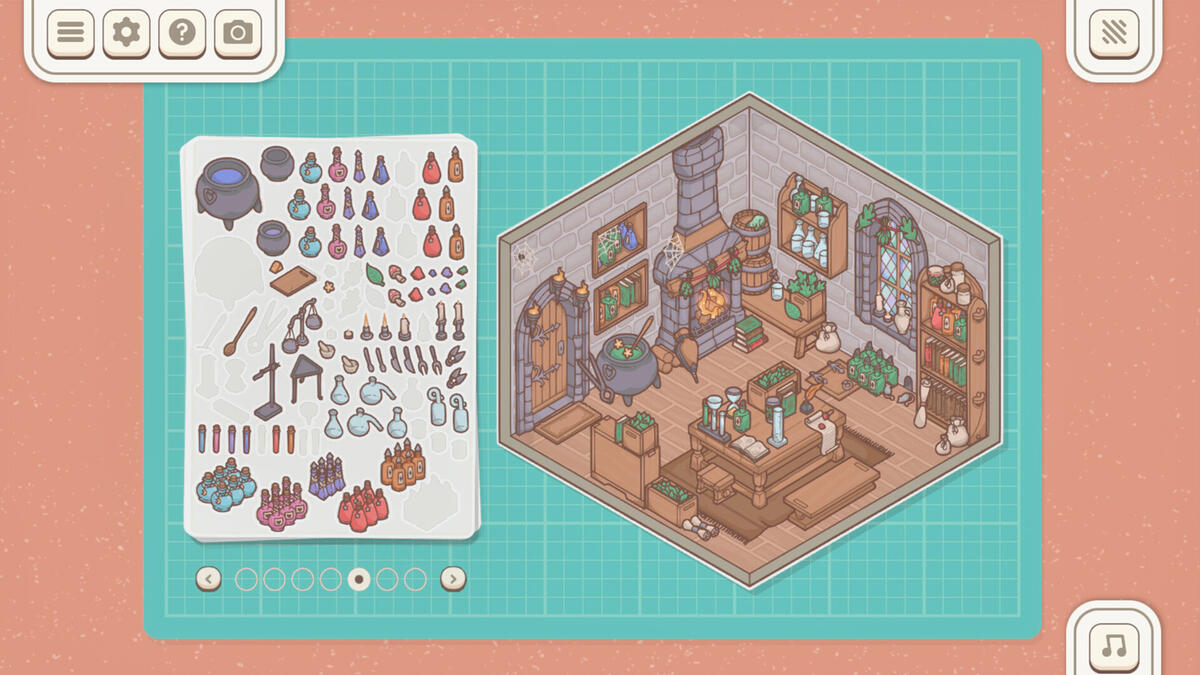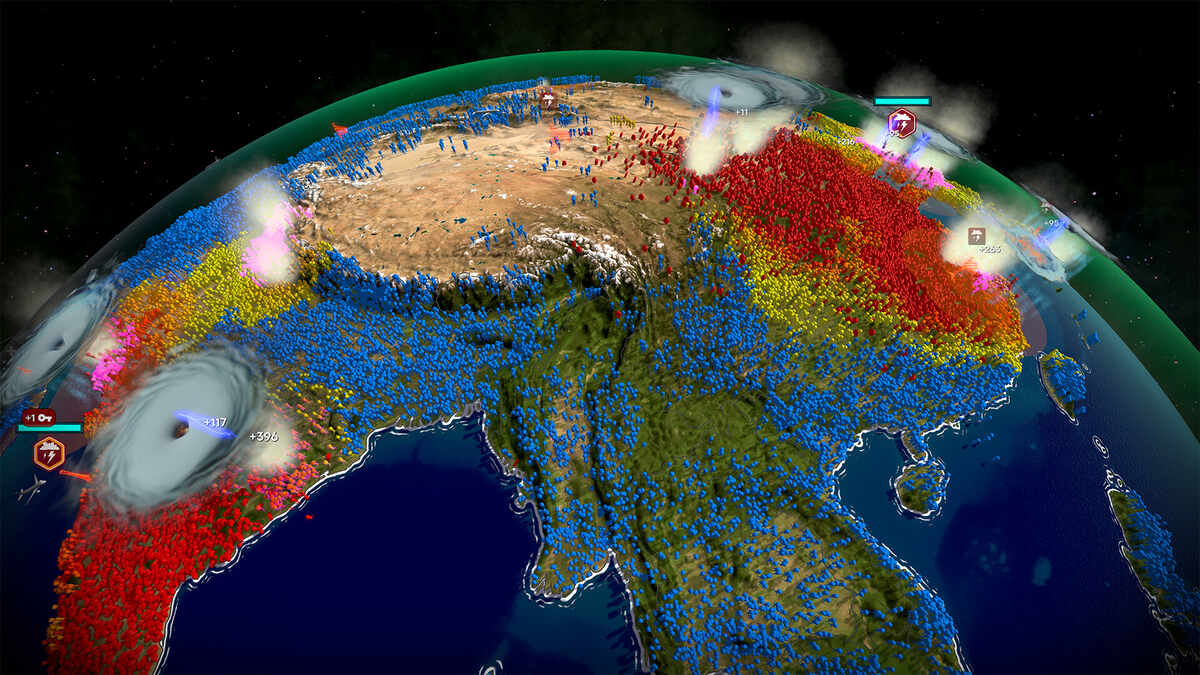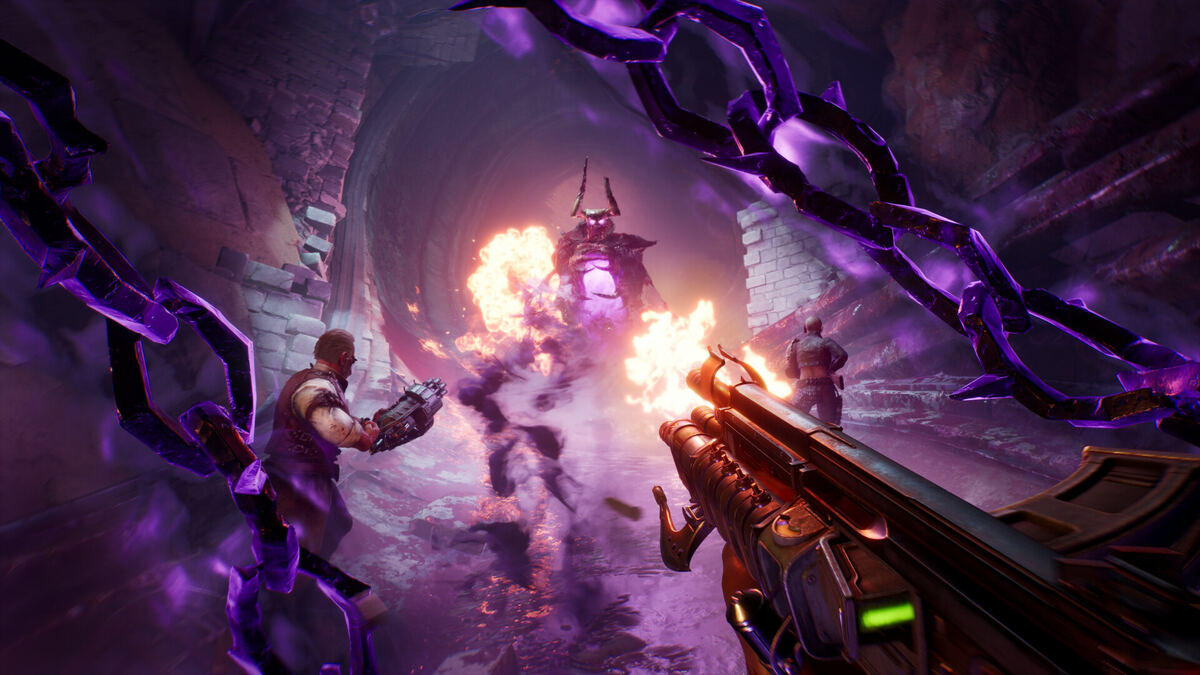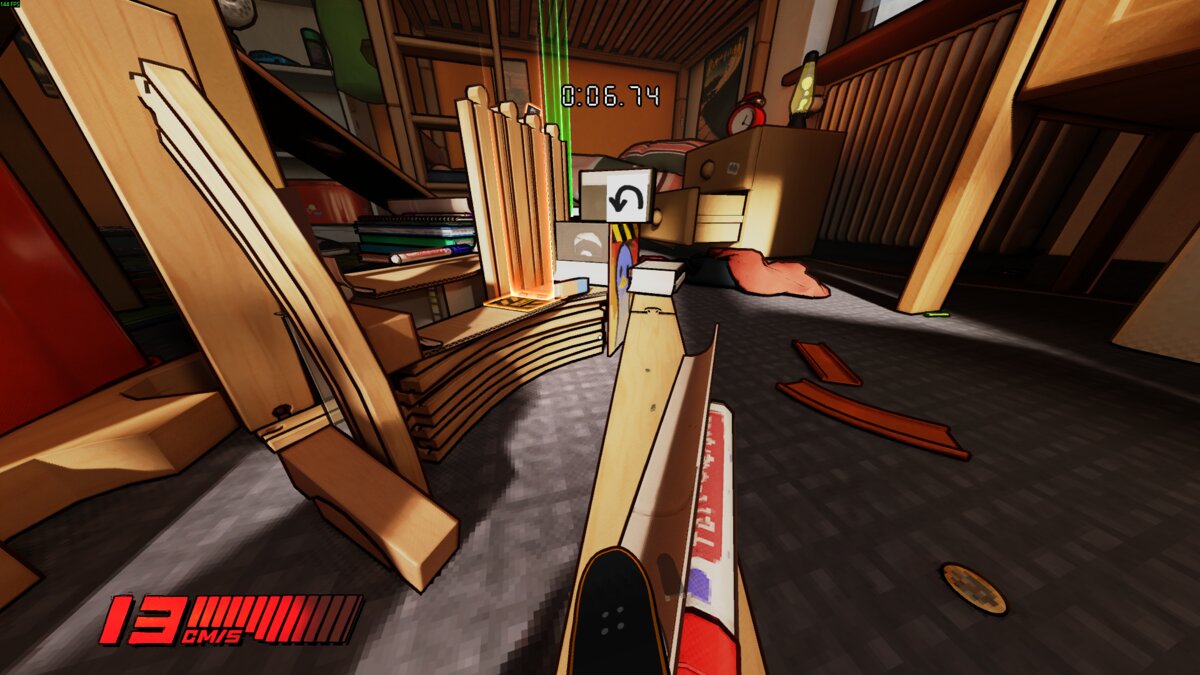You can trust VideoGamer. Our team of gaming experts spend hours testing and reviewing the latest games, to ensure you're reading the most comprehensive guide possible. Rest assured, all imagery and advice is unique and original. Check out how we test and review games here
Dave Jones is a legend. The Scot co-founded DMA Design (what became Rockstar North), created Lemmings (designed and named in an hour) and the Grand Theft Auto series, founded Realtime Worlds, created Crackdown, and is now getting promising PC online action game APB ready for release early next year. At the recent Develop conference in Brighton, Jones delivered his conference keynote titled Online Functionality for your Next Game? Why not go 100% Online? Afterwards, we sat down with the creative director for an in depth chat on his design philosophies, APB, and what game he’s most proud of (it’s not GTA).
VideoGamer.com: Congratulations on your presentation at Develop 09. I thought it was interesting to see you chart your work up to APB. Do you have a fundamental design philosophy that you’ve applied to every game you’ve ever made, or has your design philosophy changed over time?
Dave Jones: Basically I broke it up into two areas. The DMA era, which was experimental with everything, at that point I had none. Apart from the desire to only ever make original games, I never had any interest in movie licenses or that kind of stuff, or working with somebody else’s IP or anything like that. It was really just go out there, crazy ideas, trying things out, make games. But eventually you’ve got to sit back and think, well why did the ones that work work so well and why did the ones that didn’t didn’t? I actually took about a year, a year-and-a-half, just went though everything, looked at what my motivations were, why certain things worked and why they didn’t.
VideoGamer.com: What year was this?
DJ: This was probably around about 1990, 1991, so after I left DMA effectively, and it became part of Take-Two. It was that – it was like, well, you know, if you’re going to start a new company what’s it going to be about and what are we going to focus on? That’s when I came up with those strong design principles and said these are the things I think I’m good at, these are the things I enjoy and if I’m going to do anything else going forward, I decided, because of the budgets we were in, I was going to stick to those principles.
VideoGamer.com: To be able to say I’m not interested in someone else’s IP or licensed titles, I’m just going to make original games, that’s quite a privileged position. What was the chief factor in you being able to put yourself in the position of being able to do that?
DJ: Even at the start, although it was original games they were kind of plagiarised. I started off like everybody else. I started off making side-scrolling shoot em ups, so that wasn’t exactly innovative. But hell, I always made sure that I had a huge sense of pride in what I was doing, so in terms of attention to detail and polish, I absolutely broke my back to make sure that every part of the game was really well polished and presented. And that’s enough. Even if that’s your one principle, it’s enough. If you achieve that and then you start to say, well I want to do something a bit different, this time I want to try and do something new, and then you build that on top of those principles, you move yourself forward again – what it does is it puts confidence in people who are going to back you. They say, we know his quality is top notch, he’s tried a couple of original things, they started to look really well as well, would we back him for something completely new and original? At least then you’ve got something to base it on. I think it was just through gradually building up – good game, good game, innovative good game, big hit innovative good game – and just keep pushing each time.
VideoGamer.com: Hits help I guess.
DJ: They do help, you know? Everybody wants the “it’s out the ball park” one, they really really do. I’ve been lucky to have a couple of those. But as long as you’ve got four out of the five fundamentals, getting the last one just makes it a little bit easier. The last one is, it could hit it out of the park. If you’ve only got two or three of the five things you need, you’re never going to do it.
VideoGamer.com: Looking back at your career to date, was there a moment, or was there something specific that happened, that led you to feel that you were going to be able to develop whatever you wanted in this industry and be successful?
DJ: No I don’t think so. I think you’re only ever as good as your last game to be honest in some respects. That’s probably not quite true – it is always hard to keep doing hit after hit after hit. I’ve got a friend who used to work with me, he runs a company called Denki now, he wrote a good article, he said, in the last 100 years there’s only been two creative companies ever who you could really say have been a hits franchise. One of them was Motown Records and one of them was Pixar. They’re the only two in the history of anything creative where you could say all they ever do consistently is big hit after big hit after big hit. It’s just extremely, extremely difficult to do. So I don’t think you ever look back and think well, you know, I could do it now, it’s not a problem. I think you’d lull yourself into a false sense of security by doing that. I’m always scared about showing something for the first time. If I ever got to the stage where I was overconfident… I don’t ever see myself getting that way. It’s still really really scary when you want to show somebody something creative, you’re thinking, what are people going to think about this? Are they going to enjoy it?
VideoGamer.com: Given that you’ve got more than 20 years experience making successful games, can you know fairly early on that what you have is at least good, and you can be confident in it?
DJ: I think from an ideas perspective, yes, but the problem with our industry is technically implementing that is always a challenge. Sometimes I wish it was more like the music industry. When you’ve got a song you think, ah I know exactly the song I want to make – there’s nothing technically going to stop you doing it then. It was all the creative challenge. I can come up with a great, great, great concept and a great set of ideas, but then technically it’s still a huge team that has to deliver upon that. That’s certainly a challenge.
VideoGamer.com: You say technically not in terms of hardware limitations but in terms of budget and manpower?
DJ: Manpower and skills. We talk about APB – technology wise there’s a hell of a lot we’re having to do that people don’t see. People love APB a), for its great character customisation system. I look at that and think, yeah we’ve pushed the envelope with that. We’ve pushed the envelope with that in terms of character customisation in a single-player game, but what people don’t realise, not only do we have to deliver this amazing character customisation system, we also have to make it so that we can transmit it over the web in real time with 100 players. That introduces a whole new technical risk to the project. Instead it’s a problem you’ve got to overcome, than if you were just doing it locally on your PC and you don’t care about how much memory it takes to store that customisation. There are always a hundred strong technical challenges you have to overcome in any game design, in any forward thinking game design, that people tend to forget about. That’s where your project can really fall down – great idea, poor execution. You’ve heard it before, you know?
VideoGamer.com: So there are a lot of great ideas out there?
DJ: To be honest, everybody has great ideas. That’s actually not the hardest part.
VideoGamer.com: You’d think it would be, wouldn’t you?
DJ: Well you’d think it would be. I don’t think it is, actually. Every developer, they always have a great idea for games, that’s what you have to do. But at the end of the day you still have to deliver upon those, and that’s still a tough tough challenge in our industry.
VideoGamer.com: What developer do you most admire not in terms of ideas, but the execution you’re talking about?
DJ: Guys like Epic. When you look at everything that’s in Gears of War you think, yeah okay, you could see somebody coming up with that design, but you then have to execute upon it perfectly. I study games – it’s a great way to learn – but just the movement in Gears of War is actually very very slow. Now, what would have happened with most developers is, that’s probably what the game would have been criticised for, because they would not have managed to make the game setting and the controls and the animation and the cover system, they probably would have not managed to work with that issue and make it an integral part of the game so it feels like that’s the way the game is designed. Slow character movement, a lot of the time, you think about first-person games like Quake, characters move really really fast because people want it to feel responsive and intuitive. In Gears of War I was quite amazed how slow their characters are, but nobody ever picked up on it. I think that’s the sign of a great developer versus somebody else who can’t decide what to do with the speed, they probably would have made a poor game.
VideoGamer.com: Transporting that to APB then, how have you decided how fast characters move in the game?
DJ: It impacts on things like, we have this great visual customisation system and the characters look great. When you’re walking through the world, you want to look at a player and think, damn that guy looks cool. But you want to walk at a normal pace because you could be walking with your friends down the street in symmetry. Whereas if you’re walking at what gamers want in terms of speed, which is probably more like 15 miles an hour, it breaks the illusion of real people and therefore these cool customised characters that are meant to be walking down the street in this cool way, that’s a different speed from if you want to play combat. You let your combat feel like you’re moving through treacle… and actually at true walking speeds combat is really really slow. So then it’s like, well what do you do? Do you give game players what they want in terms of action, or do you want people saying, when I look at this world it’s not a real world because everybody’s walking around at these crazy speeds. That’s the kind of thing you have to balance really really well. What’s more important? Really they’re both as important as each other.
VideoGamer.com: In your role now, do you have much opportunity to impact directly on game design, or are you more caught up in the business side of things?
DJ: No it’s definitely not business. We’ve just hired a CEO as the company got to the stage where it’s getting bigger and we’re getting closer to launch. I retained the creative director title. To me that’s still the most important part of the company – creatively delivering great great titles. My job really is to set a creative vision for the product, to give the team as much freedom – it’s a huge team these days. APB’s over a hundred people. Everybody needs ownership in what they’re doing, but at the same time I have what we call the pillars of the game. I don’t mind trying things out underneath the pillars, but the game has to have pillars and absolutely everybody understands what they are, and that’s exactly what we’re working to. How underneath we have some movement in how those pillars are achieved, that’s where we get some creative freedom for the teams and the individuals involved.
VideoGamer.com: Do you find that you have to put your foot down when people stray off beyond those pillars often?
DJ: Yes, but not very often, because if we have to do that we’ve failed and not everybody’s marching in the same direction. Most of the time that’s not really an issue. That’s more of an issue in the early days of the project, when everybody’s discussing about which direction we want to take this one particular part of the game in. And then of course there are always parts of the game you design and think are going to work, but when you try them out it’s like well… It’s very hard to design on paper. It’s very hard to design in your head – a lot of the stuff is very, very tactile – let’s try it out and see how it feels.
VideoGamer.com: If there’s one thing you achieve with APB that’s more important than anything else, what might that be?
DJ: It’s hard to say. One of the things I want to see out of this, we use the term celebrity in APB a lot. I want players to become celebrities. I suppose what I really mean by that is it would be good if they truly do become a celebrity. If there’s a player or a clan that achieves such amazing status in the game, that they effectively transcend the game, and be known as effectively that name or that clan. It’s happened with individual players. You probably remember guys who used to play Counter-Strike… Fatal1ty – he was an individual player. He was the first, but I’d like to achieve the same thing really effectively for their game character or their clan. It’s kind of happened a little bit with World of Warcraft because you have the top EU guild, Nihilum – people start to achieve for the first time ever celebrity status from within the game. I think that’s very very cool. I think that’s very very powerful. So with APB, because we’ve got the tools that visually they can be different as well – so you have Nihilum the name, but really they look like any other guild, that’s the way the game works, but here’s a chance for them now to be actual individual game characters. So I think if we can really push that and really make it work, that will be the first time anyone’s managed to create real celebrities from their gaming characters.
VideoGamer.com: I thought it was interesting when you talked about why you decided to go with the PC for APB. Are you done with consoles now?
DJ: Absolutely not. I just think that in terms of online, in terms of doing something very, very different, it’s just easier on PC because it’s an open platform. We can make our decisions, we can stick by them, we can say these are the reasons for doing it, it’s still a great market, and just do it. Console is a bit trickier because it’s a closed system. So here we are coming up with something about – our game runs on a server, how does that fit in with the worlds of the Sonys and the Microsofts? Do they really understand what we’re trying to do? Maybe just now they don’t, because we are pushing a few areas. I believe until we deliver the game, people understand then, they go, oh right, okay, I see what they’ve done. It is very different. So in some respects it’s much easier to have conversations with the console people then. When, this is it, hopefully it’s a big hit for PC; these are all the huge things that have to be in the game. Putting it onto consoles is still going to be a big job. It’s control methods, communication systems; they all have to be thought about very, very carefully. It’s more a matter of timing. I wanted a clean run at it, no other distractions; let’s build this thing the way we want to build it, rather than trying to always be working with or against potentially different clash of ideas or clash of business perspectives. It’s like, let’s just do it our own way. If we’re right, then that’s the best place to have the conversation I believe with the other platforms.
VideoGamer.com: You’ve talked about having 100 players per city partly due to technical constraints. Is it the case that the current generations of consoles simply aren’t ready for APB? Would the next generation of consoles be better suited?
DJ: No I don’t think so. It’s a technical and a game design constraint actually. Technical is more about bandwidth. That’s nothing to do with the systems. In terms of processing power, the current generation is pretty damn powerful. I don’t think we’d have that much of a problem in doing that. It was a design decision as well. We use players against other players – we have to have this constantly shifting pool of, some players are tied up in missions, some are then free who’ve just dropped out of a mission so they’re ready for the matchmake, so there are some design decisions about a hundred. There were design decisions about familiarity. If there are a hundred people and you’ve been playing for ten or 15 minutes, very quickly you’ll get to know who they are. In terms of a hundred people and just looking at leaderboards or achievements on a per city basis, a hundred is something you can feel I can be somebody in this city. It’s hard to be somebody in ten thousand. So there were lots of considerations, but if we wanted to I believe we could do a great version of APB on console, and it doesn’t have to have any limitations.
VideoGamer.com: You’re not calling APB an MMO. Traditionally with MMORPGs they have a long shelf life. Do you see APB being around for five years, ten years, like the World of Warcrafts and the EverQuests?
DJ: Absolutely. I mean that’s ultimately the goal. But not maybe for exactly the same reasons that those ones have been around for a long time. They have their mechanics for keeping people in the games, and we have a lot of the same mechanics. At the end of the day, the big bit about these MMORPGs is the community and how they interact and the social stuff. It’s nothing to do with the game. So they have that, and then you have the game mechanics. So they have some interesting game mechanics, things like progression, levelling, items that you aspire to own which take a long time to get – that’s one mechanic, and that’s a great mechanic. It’s easily one you can build time around, because you can say, well okay we’ll make it this difficult, or you know you can play for seven hours a week, and one instance takes ten hours to complete, and there’s only ten per cent of loot for the whole group – you can do the numbers and do the maths and do it on a spreadsheet. The method I looked at, the kind of ideas I looked at was more like Counter-Strike. There’s a game which kept people playing for years and years and years, but from a very, very different perspective – just a great, great, great core combat game. I want more of what Counter-Strike did coupled with the social stuff that Counter-Strike didn’t do. You couldn’t even have a clan in Counter-Strike for heaven’s sake. People used to improvise by adding it to the end of their names. They had to try and organise when to meet up, and try and form groups, they effectively ran their own server then and try and get a good server and invite players to it – all that stuff Counter-Strike players were doing, they had to try and do off their own back. We’ve taken all that and said, make it from the beginning. You get all the social stuff you get from World of Warcraft. The difference is in the core gameplay. APB is a hell of a lot of fun to play, because I do play it day upon day upon day upon day upon day. We have progression as well – it’s visual. We have leagues and stats and achievements. But at the end of the day, after playing World of Warcraft for a night I don’t sit back and go, wow! That was an amazing fight I was just in. It’s not really about an amazing fight. It’s about tactics and just getting through stuff. I want people in APB to come out after a couple of hours and say, wow we had some amazing fights with that squad and that clan, and that guy was dominating tonight.
VideoGamer.com: It would be fair to say that given the games you’ve created, you’ve solidified yourself in the pantheon of video game creators. What single achievement are you most proud of?
DJ: I suppose it would be Lemmings actually. It just happened instantly. It was a) inspired by an animation, so the idea came together probably in an hour. We actually named the game in that hour. I have never worked on a game where you come up with an idea and you name it within an hour and then a year later it still comes out with that name. In terms of it being so, so different. Probably because it was the last game I personally wrote as well. Effectively after the Lemmings games the teams were too big. So I suppose for all those reasons Lemmings is the one that still resonates the most with me. It was a pivotal point. And I did write it the way it came to be. For all those reasons to me it was very, very special.
VideoGamer.com: You mentioned the concept came from an animation that was created in an hour and the game was named in the same hour. Can that happen now?
DJ: No I don’t think that could happen now. These days games are so much more in depth, unless you’re doing something very, very simple, like an iPhone game or something. To give an example, for me, if I get an idea for a game, typically I tend to in my mind I work with it, I mull it over, I go through things, typically for six months to a year.
VideoGamer.com: Without saying anything to anyone?
DJ: Yeah.
VideoGamer.com: How do you keep quiet?
DJ: Because nine out of ten… if I’ve given up after three months, it’s just like an internal test for me. If I’m not keeping revisiting that and trying to put more flesh on the idea and thinking how will this work, how will that work? It’s a great test for me, because if after two or three months I let it drop I know it’s not going anywhere. But after six months or 12 months it’s still there, it’s still eating away at me, and I keep saying I can solve this, I can solve that, that’ll work – then typically that’s how long it takes. I have to incubate an idea. You’ve got to think of so much these days. It’s not just the game, it’s how do you turn it into a franchise? Where do you go after one? What does two look like? Is there enough scope to turn this into a franchise? Those kind of thoughts you have to have right away. So no, I don’t think it’ll ever happen like that again. It’s a very well thought out carefully thought out, long term process you go through these days.
APB is due out for PC early next year.
All Points Bulletin: Reloaded
- Platform(s): PC, PlayStation 4, Xbox One
- Genre(s): Massively Multiplayer Online, Shooter
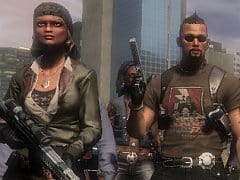
/https://oimg.videogamer.com/images/b87e/all_points_bulletin_6.jpg)
/https://oimg.videogamer.com/images/b093/all_points_bulletin_5.jpg)
/https://oimg.videogamer.com/images/9438/all_points_bulletin_4.jpg)
/https://oimg.videogamer.com/images/4c6e/all_points_bulletin_3.jpg)
/https://oimg.videogamer.com/images/b30f/all_points_bulletin_2.jpg)
/https://oimg.videogamer.com/images/295a/all_points_bulletin_1.jpg)
